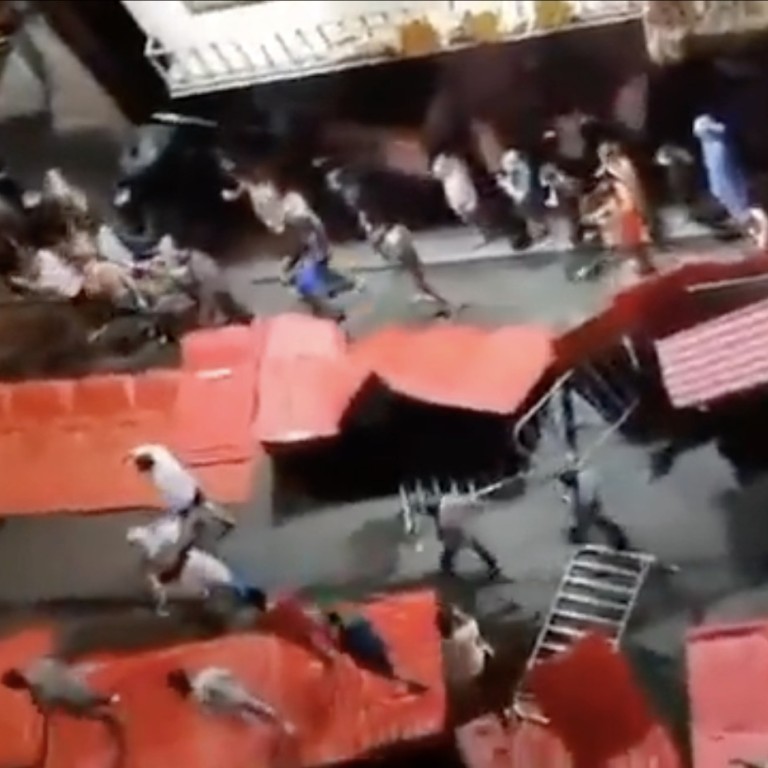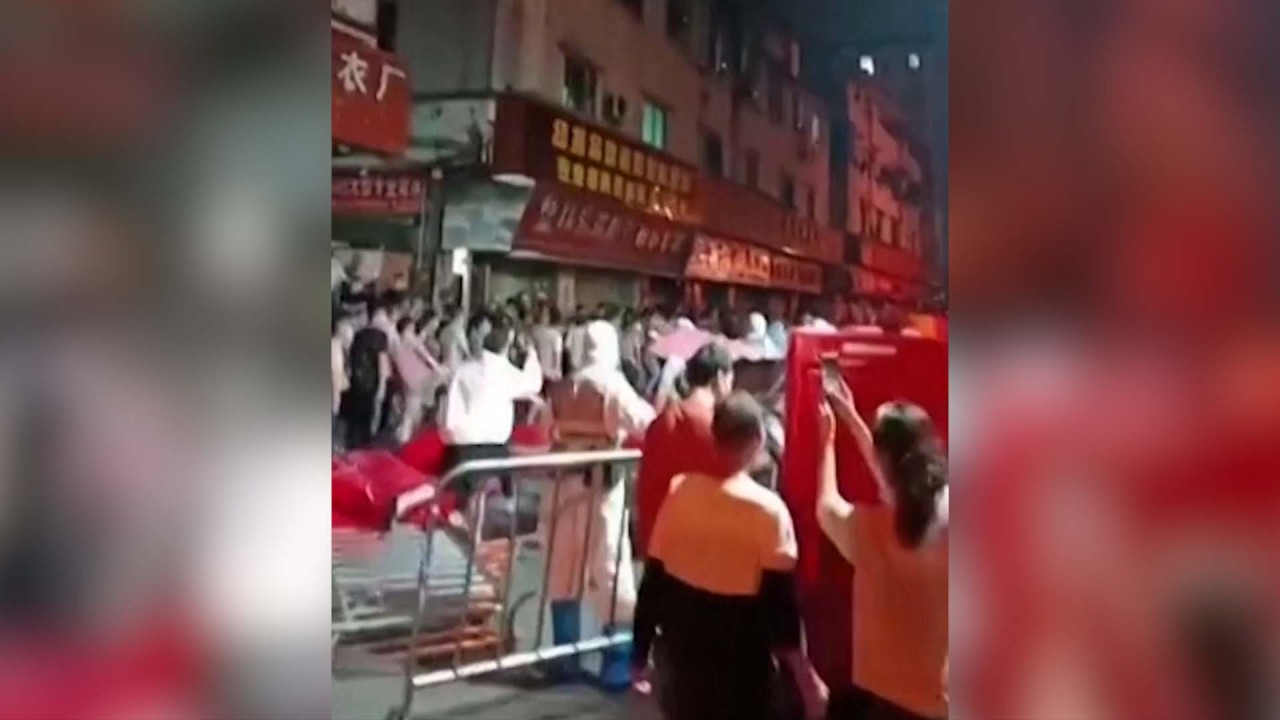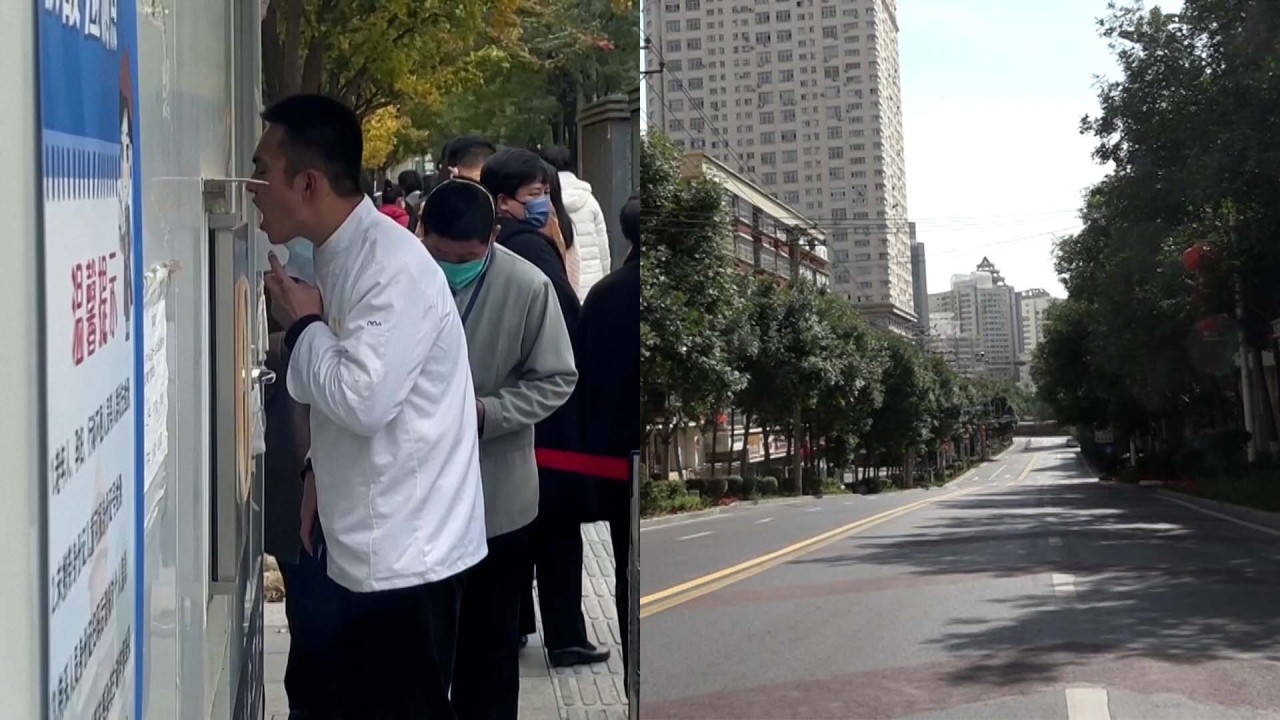
Chinese migrant workers protest amid Covid-19 lockdowns in Guangzhou textile hub
- Residents confirm unrest erupted on Monday night in urban villages in Haizhu district, home to the country’s biggest fabric market
- Textile industry employees have been forced to return to their home provinces as coronavirus cases spike
Marrisa, a resident living opposite an urban village, said she witnessed one of the incidents.
“After a while, people began to gather, violently beat the corrugated iron fences [that seal off the buildings] and smashed the checkpoint. Then many volunteers and police headed towards them.”
The chaos lasted about 20 minutes, and some residents who did not go downstairs chanted messages of support from windows, said Marrisa, who declined to give her surname. By about 9.40pm, the situation was under control and police had arrived, she said.
Multiple residents confirmed to the Post that unrest erupted in several urban villages in Haizhu district, including Kangle, Lujiang, Datang and Xiachong.
China’s new Covid-19 controls get mixed reaction as rising cases stoke fears
A police officer in Guangzhou confirmed that the unrest occurred and said the reasons behind it were multifaceted.
“Everyone has his or her own demands, but definitely there are people provoking troubles deliberately,” he said.
After the unrest, the residents were sent back to quarantine, and police and community workers put the barriers back in place, the officer said.
Guangzhou battles Covid-19 surge as China’s cases hit 6-month high
The reason for the sudden protest was not immediately clear. One community volunteer, a native of Hubei province, said it was related to migrant workers failing to comply with local pandemic control measures.
The fabric market employs hundreds of thousands of migrant workers, with more than 300,000 from Hubei, according to the Apparel and Fashion Industry Association of the Hubei Chamber of Commerce in Guangdong.
The industry association had been negotiating between Haizhu health authorities and Hubei workers under lockdown, an employee with the group said on Tuesday morning.
“We’ve been busy managing the situation on the ground,” she said, adding they have been collecting the workers’ information, sending it for review, buying bus or train tickets and escorting them back home.
Some speculated that the plan to send workers to their hometowns was one of the reasons behind the unrest on Monday evening.
Others blamed long-standing conflicts between Hubei workers and Guangzhou locals in urban villages.



